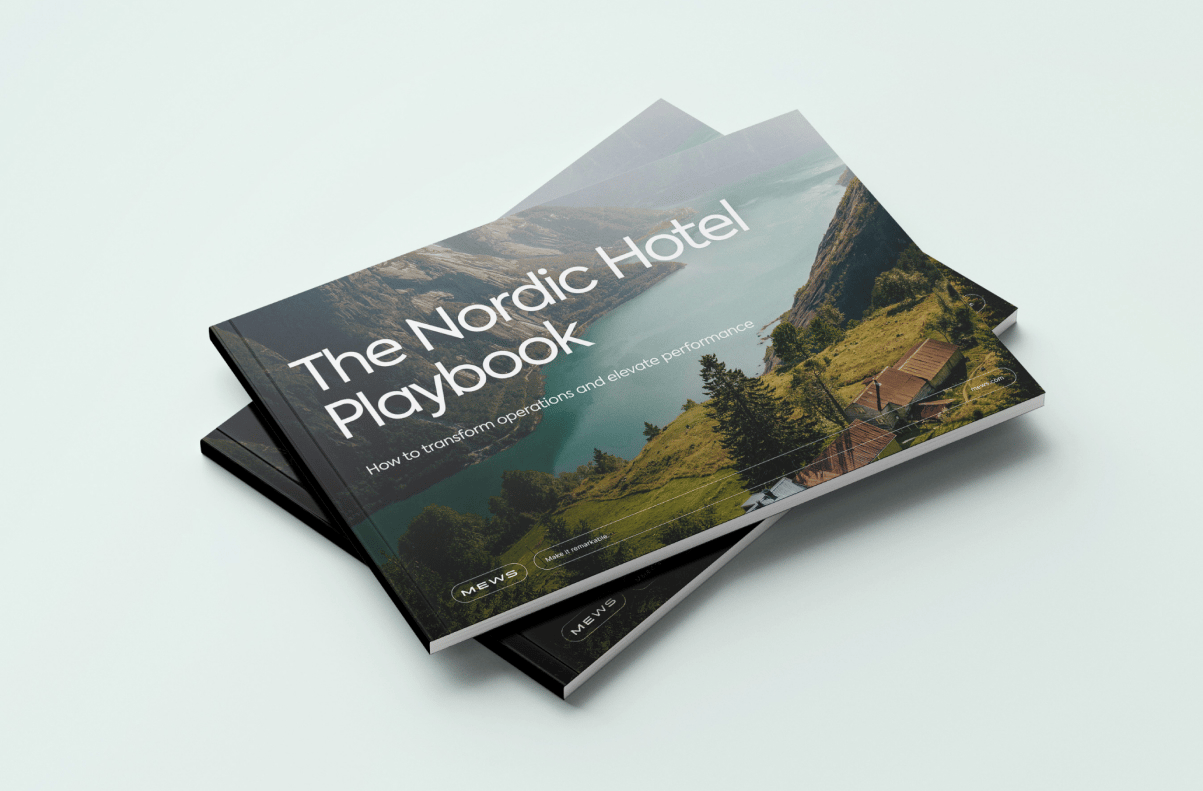Guest engagement is a strategy that can be used to influence potential client behavior, especially to drive hotel bookings and increase brand loyalty and retention rates. By maximizing your online presence and mode of communicating you can encourage interaction with your brand throughout all stages of the guest’s journey, that is the “pre,” “during” and “post-trip” phases, while at the same time guiding customers through the sales funnel.
Social media, data, clear messaging, making your operations guest-centric and using text-based strategies can all improve the way and frequency in which clients engage with your brand. In this article we’ll look in more detail at what is guest engagement, why it’s important, and the key strategies to achieve feasible goals.
Table of contents
What is guest engagement?
Guest engagement is like the “customer engagement” principle in marketing. It is the process by which a hotel brand interacts with guests through chosen marketing channels, keeping them engaged throughout their purchase journey. The aim is to create lasting connections with clients in order to build brand loyalty, nurture customer relationships, and encourage hotel bookings.
It also refers to how well a hotel can attract and keep the attention of their current or future clients using the tools they have available such as social media, messaging, technology and human resources, which we’ll discuss in further detail below.
Why is hotel guest engagement important?
Hotel guest engagement is important because you have the possibility to influence purchasing behavior online and collect personal information that can generate leads. Furthermore, the more interaction your brand has, the greater the perception of brand value and the more customer insights you can gain as a brand. Those customer insights can be used to make marketing decisions as well as define sales processes.
Engagement is a way of connecting emotionally with guests in order for them to become brand ambassadors. Of course, the better the stay meets expectations, the more likely your hotel is to retain guests, but regardless, engaged consumers create a lasting connection that translates to brand loyalty, ultimately achieving a higher customer lifetime value.
What are the best hotel guest engagement strategies?
Now that we’ve looked at what engagement means for hotel guests and why it’s important, let’s look at the five best strategies. Before implementing these strategies it’s important to consider the needs of existing and potential customers.
From there you can identify the key steps in the purchase journey in order to add touch points along the way to consistently reach customers. These touchpoints should include data-driven, personalized information to provide an optimal customer experience that will ultimately lead to brand loyalty.
Text-based communication strategies
A text-based communication strategy is a great way to keep engagement up in all phases of the buyer’s journey. In the pre-trip phase you can alert potential customers of low fares and promotions; during their stay, you can remind them of your extra services and send promotions for booking another stay, and after the trip, you can keep guests engaged with text messages.
As a hotel you can take advantage of the concept of a connected guest to offer online guest services as well as a self-service kiosk to shorten wait times, and expedite the check in and check out processes. Piggy back off the fact that travelers have adopted mobile technology in order to stay connected with your guests. Meanwhile, you can also boost customer satisfaction by offering quick solutions to client doubts and questions with text-based customer support.
Use social media
One of the best engagement strategies is without a doubt social media. Social media allows your business to connect with potential guests, creating brand awareness and at the same time engaging with regular guests.
By providing dynamic content such as attractive visuals, videos and valuable resources, guests are more likely to have your brand in mind when it comes time to book a hotel. Read more about social media strategies.
Have a clear brand identity and tone of voice
Pinpoint your brand identity and tone of voice and keep it consistent across all your marketing channels. Furthermore, make your voice and brand consistent with your target audience. The more you have your target audience in mind when creating your identity and communication pillars, the clearer the messaging, and the more likely it is to engage and ultimately convert.
Make your hotel operation guest-centric
Making your hotel experience as guest-centric as possible is ideal for increasing engagement. For example, you can implement a virtual concierge, which will help you to prioritize your guests every step of the way.
A virtual concierge makes it easy for them to contact you during their stay, while enabling you to respond to queries faster and provide outstanding service. Whether it’s allowing them to check in and check out online without having to stand in a queue, or asking and answering questions throughout their stay, it’s a great way to make guests feel like their needs are being met, hence improving customer satisfaction.
The better the quality of service, the more likely your guests are to write positive reviews and to keep in touch with your brand long after they check out.
Leverage data
Nowadays, we have more data available at our fingertips than ever. Using this data to deliver personalized and targeted messages will make it more likely for guests to interact with the messaging and therefore more likely to convert.
As part of your strategy, start by defining your guest profiles. Data will give you the information to know what they are looking for so you can provide better and faster solutions to their queries. Knowing your target audience better will also make them want to get to know you better.
Furthermore, you can use artificial intelligence to improve the in-hotel experience. Hotels can also leverage data and technology to improve interaction while onsite. Read more about technology trends that can help your hotel.
Conclusion
As we’ve discussed throughout this article, having a guest engagement strategy in place can help your hotel better communicate with your clients and provide a seamless experience both online and offline. In order to do so, hotels can use technology like guest experience software to improve engagement in all phases of the guest journey, such as implementing a virtual assistant who can easily answer questions and help guests at any time.
The better the experience that you can provide for the guest while they are staying at your hotel, the more likely they are to share their opinion online and to keep engaging with your brand on social media channels in the future.
Implementing the strategies we have discussed throughout this article will help boost the brand experience, improve retention rates and allow you to drive bookings while at the same time improving overall customer satisfaction levels and gaining valuable customer feedback and insight.

Author
Eva Lacalle
Eva has over a decade of international experience in marketing, communication, events and digital marketing. When she's not at work, she's probably surfing, dancing, or exploring the world.
Hospitality hot takes straight to your inbox
Sign up to our monthly newsletter for industry insights, product news, partner updates and more.

The Nordic Hotel Playbook
Download now


.webp)